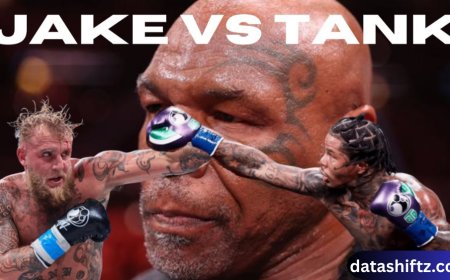Big Brother: Inside the World’s Most Iconic Reality TV Show

Introduction
Few reality television shows have captured the global imagination quite like Big Brother. Since its debut in the Netherlands in 1999, the franchise has expanded across continents, creating cultural phenomena in countries like the United States, the United Kingdom, Australia, and India. The premise is simple yet compelling—place a group of strangers in a house filled with cameras and watch how alliances, conflicts, and strategies unfold as they compete for a cash prize.
From its Orwellian namesake to its status as a social experiment and entertainment juggernaut, Big Brother has become a staple in modern television. In this article, we explore the origins, format, global impact, notable controversies, and evolution of the show through the decades.
The Origins of Big Brother
From Fiction to Reality
The name Big Brother originates from George Orwell’s dystopian novel "1984", where "Big Brother" represents a surveillance state that monitors every move of its citizens. The show's creators cleverly borrowed this concept, turning it into a real-world social experiment where contestants are under constant watch.
The first season aired in the Netherlands in 1999, created by John de Mol and produced by Endemol. The show's format quickly captivated audiences due to its voyeuristic appeal and real-time drama, prompting rapid international expansion.
The Format and Game Mechanics
How the Game Works
At its core, Big Brother places a group of people (called “houseguests” or “housemates”) in a custom-built, isolated house, where they are monitored 24/7 by cameras and microphones. The goal is to outlast everyone else and win a substantial cash prize, often by avoiding weekly eviction votes.
Big Brother Game Format Breakdown
| Element | Description |
|---|---|
| Houseguests | 10–20 contestants isolated from the outside world |
| Surveillance | 24/7 live feeds and recorded content shown on TV |
| Head of Household (HoH) | Weekly competition to gain power and nominate others for eviction |
| Veto Power | Winner can save a nominee from eviction |
| Eviction Voting | Houseguests vote to evict one of the nominees each week |
| Jury Phase | Evicted houseguests return to vote for the winner in the final episode |
| Prize Money | Varies by region (e.g., $750,000 in the US) |
Global Popularity and Regional Variants
A Worldwide Franchise
The show has been localized in over 60 countries, with each version adapting the format to suit cultural and regional preferences. Some focus heavily on competitions (Big Brother US), while others are more socially driven (Big Brother UK).
Notable Big Brother Editions Around the World
| Country | Local Version | Notable Features |
|---|---|---|
| United States | Big Brother US | Competition-heavy, strategic gameplay |
| United Kingdom | Big Brother UK | Social focus, strong emphasis on personalities |
| India | Bigg Boss | Hosted by Bollywood celebrities |
| Australia | Big Brother AU | Blends US and UK styles |
| Brazil | Big Brother Brasil | Massive viewership and celebrity crossovers |
Countries with Most Seasons
-
United States – 25+ seasons
-
United Kingdom – 20 seasons (plus celebrity editions)
-
Brazil – 24+ seasons
-
India (Bigg Boss) – Multiple regional languages (Hindi, Tamil, Telugu)
-
Australia – 14+ seasons
Big Brother's Impact on Pop Culture
More Than Just a Game Show
Big Brother has left a lasting imprint on pop culture. The format inspired the development of other major reality shows like Survivor, The Circle, and Love Island. It also introduced unique terminology into the mainstream lexicon—terms like “showmance,” “floaters,” “backdoor,” and “eviction” now transcend the show.
The show has also served as a launchpad for careers, turning contestants into influencers, actors, podcast hosts, and even politicians.
Pop Culture Contributions
-
Introduced reality TV tropes used in hundreds of later shows
-
Fostered celebrity culture through Celebrity Big Brother editions
-
Explored social issues (race, gender, politics) through cast dynamics
-
Inspired memes, parodies, and academic studies
-
Created global fan communities and live-feed superfans
Controversies and Criticism
Surveillance, Ethics, and Scandals
As much as Big Brother has entertained millions, it hasn’t been free of criticism. Critics have raised concerns about privacy, manipulation by producers, and exploitation of contestants, particularly during mental health crises or heated arguments caught on camera.
Some seasons have seen:
-
Racist, sexist, or homophobic behavior from houseguests
-
Allegations of favoritism by producers
-
Psychological tolls on contestants post-show
-
Live-feed controversies that never aired on TV
The show’s reliance on drama for ratings sometimes puts ethics in conflict with entertainment.
Evolution in the Digital Age
From TV Screens to Live Streams
In recent years, Big Brother has embraced digital innovation. Fans can now watch 24/7 live feeds, vote in real time, and interact with houseguests through social media integrations. The rise of streaming platforms has also allowed for spin-offs and international season access.
For instance, Big Brother US and Celebrity Big Brother now stream live on Paramount+, while Bigg Boss airs on JioCinema and Hotstar in India.
How Big Brother Evolved Over the Years
| Era | Key Changes |
|---|---|
| 2000s | Basic social format, heavy public voting |
| 2010s | Strategic gameplay, more competitions and twists |
| 2020s | Focus on diversity, live feeds, streaming availability |
The Future of Big Brother
As reality TV evolves, Big Brother continues to adapt. Its future lies in:
-
Shorter, high-impact seasons
-
Diverse and inclusive casting
-
More audience interaction
-
Virtual and AI-integrated twists
-
Spin-offs like All-Stars and International Champions editions
There’s also growing interest in behind-the-scenes documentaries and retrospectives that explore the making of the show and its impact.
Conclusion
Big Brother is more than just a TV show—it’s a mirror of society, a social experiment, and a cultural barometer. It has entertained, shocked, and fascinated audiences for over two decades, evolving with the times while keeping its core premise intact: watching how people behave when the world is watching.
Whether you're a die-hard fan who watches the live feeds or a casual viewer tuning in for weekly evictions, Big Brother continues to offer unfiltered human drama, strategic gameplay, and a front-row seat to the complexities of social interaction.





























